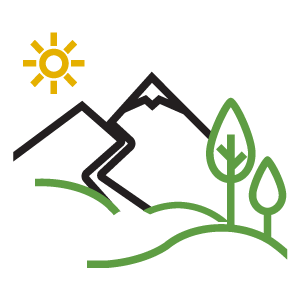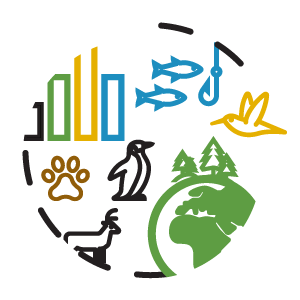BEII 2024 | High Level Panel: leveraging biodiversity-based features to scale inclusive ecotourism industry growth


Collective action for thriving nature and people
Birchwood Hotel and OR Tambo Conference Centre | 25 - 27 March 2024
HIGH LEVEL PANEL ON BIODIVERSITY ECONOMY – A CATALYST FOR RURAL DEVELOPMENT
Date: 25 March 2024 | Time: 09:30 -10:30am
South Africa is the third most biologically diverse country in the world, and therefore has one of the largest natural capital assets. It is recognised for high levels of endemism and is home to over 95,000 known species. The country also boasts a diverse range of biomes, from forests to deserts, estuaries and marine systems. Biodiversity, ecological infrastructure, and associated ecosystem services act as an invaluable foundation for South Africa's economy. From tourism to fishing, farming and industry, the products and services provided by nature support people's wellbeing, livelihoods, jobs and security. The biodiversity is not only economically viable to the economic wellbeing of the country but can be used as a vehicle for social upliftment.
However, the biodiversity is under severe pressure and degradation resulting from climate change and human activities such as deforestation, wildlife crime and illegal harvesting and trade of wildlife. There is also limited understanding of the value of biodiversity among policymakers, investors, civil society and private sector players particularly on information about the contribution of biodiversity to the country's economy. Growth of the biodiversity economy sector of the country can make a significant impact on the national economy, while contribution to national imperatives such as job creation, rural development, conservation of our natural resources and contributing to the development state. Moreover, the sustainability of the sector is not solely dependent on the state, but requires private sector, government and community partnerships, if it is to be successful.
To advance the biodiversity economy sectors, the revised National Biodiversity Economy Strategy has identified the following key focus areas of the sector:
- Wildlife;
- Bioprospecting/biotrade;
- Ecotourism;
- Forestry;
- Marine and freshwater; and
- Biodiversity-based harvesting and production.
The bjectives of the session are to:
- The objective of the session is to discuss the contribution of NBES as a catalyst to rural development especially in relation to poverty alleviation, unemployment and inequality.
- Discuss collective approach for the implementation of NBES, especially to synergise efforts and interventions for better coordination of implementation.
Outcomes:
- Alignment and support for the implementation of the National Biodiversity Economy Strategy.
Facilitator: Prof Edward Nesamvuni | Chairperson of Board, SANBI
|
Time |
Content |
Speaker(s) |
Notes |
|
2 min |
Welcome and introduction of speakers. |
Prof Edward Nesamvuni (Chairperson of Board-SANBI) |
|
|
5 min |
Advancing biodiversity economy as a contributor to rural economy, economic development and livelihood:
|
Minister Thoko Didiza: Department of Agriculture, Land Reform and Rural Development (DALRRD) |
Minister Didiza talks about how her department can contribute to the implementation of NBES looking at land as a primary enabler for NBES, i.e land reform and land tenure programmes. Technical support to the emerging SMMES in relation to legislations within her portfolio. |
|
International Union for Conservation of Nature (IUCN): Mr Vhalinavho Khavhagali |
IUCN talks about their support to sectoral priorities and alignment with NBES implementation. |
||
|
People and Parks: Mr Japhta Raphadu
|
People and Parks Chair talks about community support to conservation especially those that reside and availed that land for conservation purposes and how it will have a meaning if sustainable utilization and beneficiation from natural resources can be enhanced. Further talking to the livelihood scan (poverty, unemployment and inequality) in rural areas where most of the conservation areas are found. |
||
|
MEC Rogers Monama, Limpopo Department of Economic Development, Environment and Tourism (LEDET) |
MEC Limpopo talks of provincial perspective and how NBES could uplift poverty, unemployment and inequalities but most importantly how it can be used to contribute to conservation efforts and species management. |
||
|
Greater Kruger Environmental Protection Foundation (GKEPF): Ms Sharon Haussmann |
GKEPF talks about the practical cases/examples of operating in a broader landscape, the role and contribution of different stakeholders and how biodiversity economy can be used as a catalyst to fight wildlife crimes and provide an alternative livelihood. |
||
|
Traditional Healers Organisation (THO) Ms. Masechaba Sedibana |
THO talks of collaboration between government, academia and other stakeholders to formalise the contribution of traditional health practitioners in bioprospecting and biotrade (muti- market). Importance of harvesting resources in a sustainable manner and education and skills for health practitioners. |
||
|
|
|
|
|















